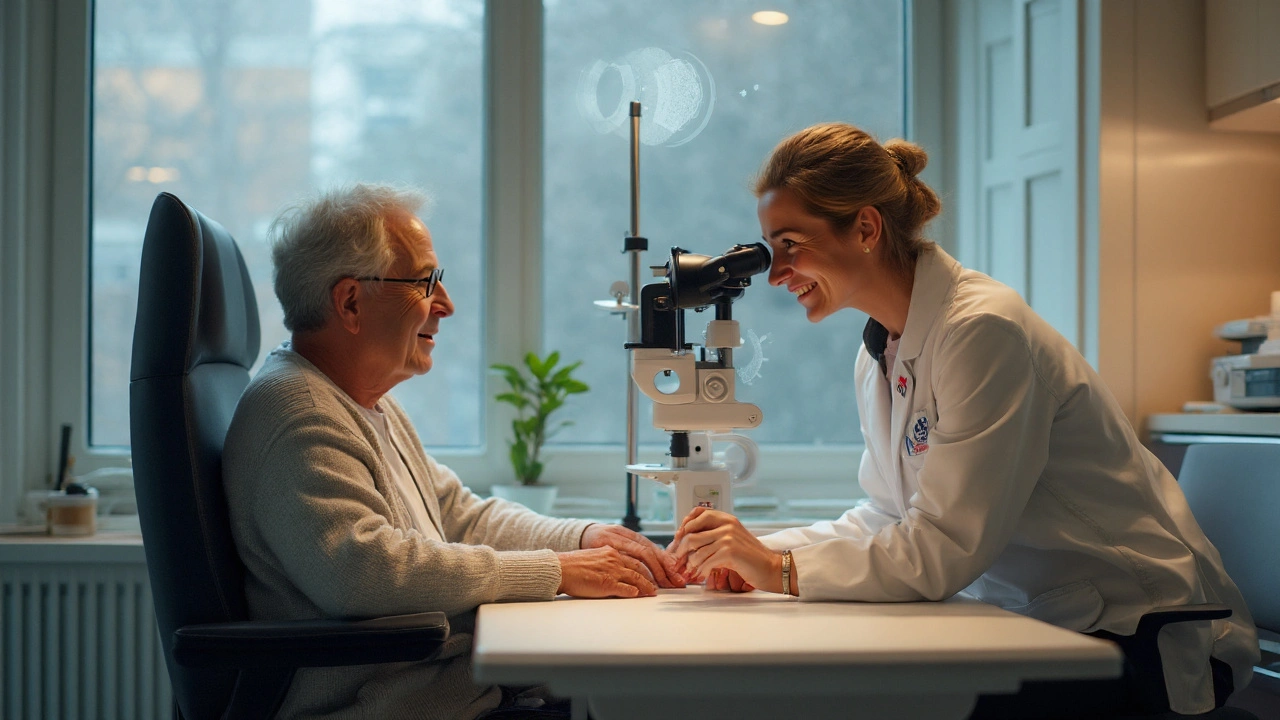Early Eye Cancer Signs: What to Watch For
Not all eye issues are harmless. Some changes in your vision or eye appearance could be the first hint of cancer inside the eye. Knowing the red flags helps you act fast, because early treatment often means better outcomes.
Common Symptoms
Here are the most usual signs that might point to an eye tumor:
Unexplained vision loss – If you notice a blurry spot, a dark patch, or a gradual decline in vision that doesn’t improve, it’s worth a check.
Flashing lights or floaters – While many people see floaters, a sudden increase in size, number, or a new flash of light can signal a problem.
Red or blood‑filled eye – A persistent redness, especially if it’s not linked to irritation or infection, should raise suspicion.
Visible lump or bump – Anything that looks like a raised area on the surface of the eye or the surrounding eyelid deserves a professional look.
Changes in pupil size – A pupil that stays dilated or reacts unevenly to light may indicate an abnormal growth.
Pain or pressure – While many eye conditions are painless, a feeling of pressure or ache that won’t go away can be a warning sign.
When to See a Doctor
If any of the above symptoms linger for more than a week, book an appointment with an ophthalmologist right away. They’ll likely perform a dilated eye exam, which lets them see the back of the eye where most cancers develop.
Don’t wait for the symptom to get worse. Early eye cancers, like ocular melanoma or retinoblastoma, can be treated more effectively when caught early. A quick visit can mean simple laser therapy instead of more invasive surgery later.
During the exam, the doctor may also recommend imaging tests such as ultrasound, OCT (optical coherence tomography), or MRI to get a clear picture of any abnormal tissue.
It’s normal to feel scared, but catching an eye tumor early often preserves sight and reduces the need for aggressive treatment. Remember, most eye problems are not cancer, but it’s better to rule it out.
In short, keep an eye on sudden vision changes, unexplained redness, flashes, floaters, or any lump. Trust your instincts—if something feels off, get it checked. Early detection saves vision and peace of mind.
Why Regular Eye Exams Are Crucial for Detecting Eye Cancer
Discover how routine eye exams catch eye cancer early, the types of cancer screened, exam components, and what you can do to protect your vision.
